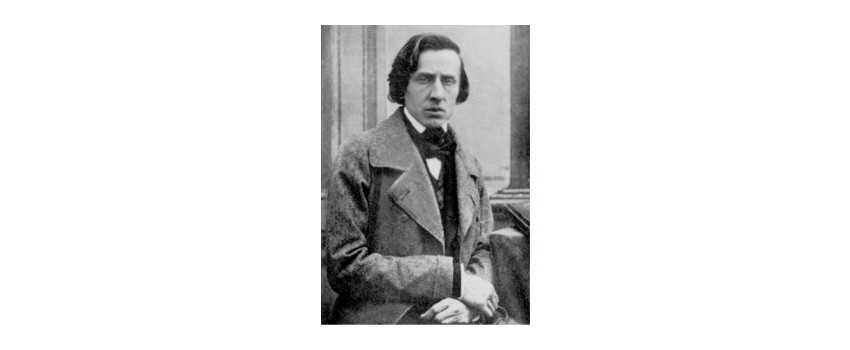Chopin, Frédéric
Frederic Chopin, a Polish-born composer and pianist, left an indelible mark on the world of music with his extraordinary talent and unique compositions. Born on March 1, 1810, in Żelazowa Wola, near Warsaw, Chopin displayed remarkable musical abilities from a young age. His contributions to the piano's repertoire and his ability to capture the soul of the instrument set him apart from his contemporaries. In this article, we will explore the life and music of Frederic Chopin, delving into his early years, his journey to Paris, and his significant contributions to the world of music.
Early Years and Musical Prodigy
Frederic Chopin's musical journey began at a tender age, as he showed a deep affinity for music from early childhood. His father, Nicholas, a French emigre, worked as a tutor and introduced young Frederic to the piano. Frederic's mother and eldest sister, both skilled pianists, further fueled his passion for music. By the age of six, Chopin was already attempting to replicate melodies he heard and even composing his own tunes.
Recognizing his prodigious talent, Chopin's family arranged for him to take piano lessons with Wojciech Zywny, a musician with a keen sense of musical value. However, Chopin quickly outpaced his teacher, forging his own path and developing a unique approach to the piano. Even at a young age, his performances at private soirees garnered attention and admiration.
Chopin's reputation as a child prodigy extended beyond his exceptional piano skills. At the age of seven, he composed a Polonaise in G Minor, which was later published. His compositions caught the attention of the Russian grand duke Constantine, who had one of his marches scored for his military band. These early successes, combined with his remarkable talent as a pianist, set the stage for Chopin's future as a renowned composer.
Journey to Paris
In the 1830s, Paris stood as the epicenter of European culture, attracting artists, writers, and musicians from all over the world. Sensing the need for broader musical experiences, Chopin left Poland for Vienna in 1830, and shortly after, he made his way to Paris. This decision would prove to be pivotal in his career, as he found a vibrant artistic community and an audience that appreciated his unique style.
Chopin's debut performance in Paris took place on February 26, 1832, at the Salle Pleyel. This concert, attended by notable figures such as Franz Liszt and Felix Mendelssohn, solidified his place as a celebrated musician in the French capital. His talents were not limited to performing; Chopin's skills as a teacher also earned him a comfortable living in Paris.
During his time in Paris, Chopin formed close friendships with prominent artists of the era, including Eugene Delacroix and Franz Liszt. He immersed himself in the cultural milieu, where he found inspiration for his compositions. Notable works from this period include the Nocturnes of Opp. 9 and 15, the 12 Etudes, Op. 25, and the Scherzo in B-flat minor, Op. 31. Chopin's music during this time showcased his refinement and complexity, as well as his ability to evoke a wide range of emotions.
Chopin's Artistic Development and Personal Relationships
Chopin's artistry reached new heights in the late 1830s, thanks in part to his relationship with George Sand, a renowned novelist. Their nine-year liaison brought forth some of Chopin's most significant works, as he found emotional contentment and inspiration in their early days together. In 1838, Chopin and Sand traveled to Majorca, where they lived in an abandoned Carthusian monastery. Despite Chopin's battle with tuberculosis, he managed to complete his 24 Preludes, Op. 28, during their time on the island.
Throughout the 1840s, despite personal ups and downs and recurring illness, Chopin continued to produce a remarkable body of work. Notable compositions from this period include the Ballades in A-flat, Op. 47, and F minor, Op. 52, the Mazurkas of Opp. 50, 56, 59, 63, and 67, the A-flat major Polonaise, Op. 53, and the Nocturnes of Opp. 48, 55, and 62. These works showcased Chopin's artistic refinement and complexity, as well as his ability to convey a sense of ambivalence and emotional depth.
However, as Chopin's relationship with George Sand began to deteriorate in 1843, his health also declined rapidly. In 1847, the couple separated, and Chopin, gravely ill, sought solace by leaving Paris and embarking on an extended journey to England and Scotland. This journey marked the beginning of the end for Chopin, as his health continued to deteriorate, and he composed very little in the final year of his life.
Chopin's Musical Legacy
Frederic Chopin's impact on the world of music cannot be overstated. He revolutionized piano composition, devoting his genius solely to the instrument. His works, whether solo pieces or compositions for piano and orchestra, displayed an unmatched level of imagination and craftsmanship. Chopin's ability to capture the essence of the piano and communicate a wide range of emotions through his music remains unparalleled.
Chopin's oeuvre includes a wide variety of musical forms, from shorter pieces like Nocturnes, Preludes, and Mazurkas to larger forms such as Scherzos, Ballades, and Sonatas. His compositions showcase his advanced treatment of harmony and rhythm, pushing the boundaries of traditional music and opening the door to emotional ambiguity. Chopin's music requires subtlety and nuance in performance, qualities that pianists have strived to achieve for generations.
Despite his relatively short life, Frederic Chopin's contributions to the piano's repertoire and his musical legacy continue to inspire and captivate audiences worldwide. His refined melodies, haunting harmonies, and innovative techniques have solidified his place as one of the greatest composers in history.
Conclusion
Frederic Chopin's life and music exemplify the pinnacle of musical genius. From his early years as a prodigious child pianist to his groundbreaking compositions in Paris, Chopin left an indelible mark on the world of music. His ability to capture the soul of the piano and convey a wide range of emotions through his compositions remains unparalleled. Chopin's legacy continues to inspire and captivate audiences, ensuring that his music will be cherished for generations to come.


